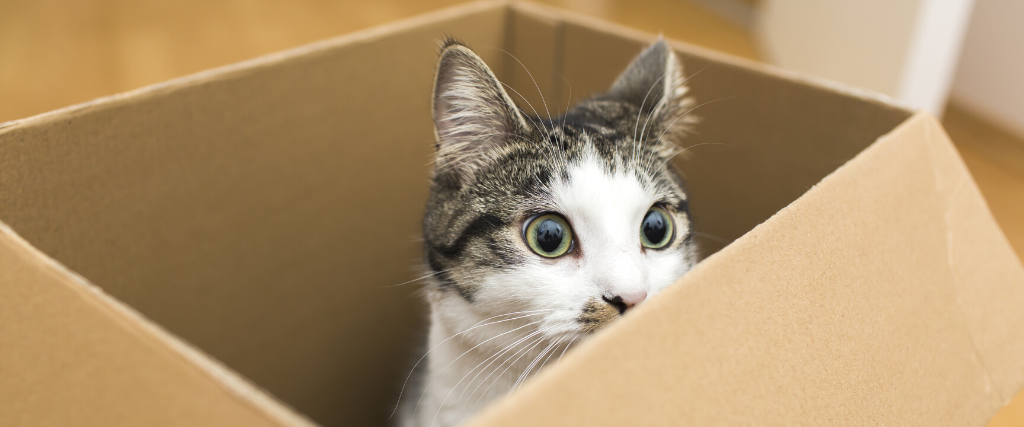Anxiety is a common problem, and it's not just for humans! Cats often struggle with anxiety, too, and may feel like they are in danger even when they're completely safe. Anxious cats exhibit a variety of symptoms, including both physical and behavioral ones. Fortunately, there are solutions.
Managing anxiety improves your cat's quality of life and can help them overcome problematic behaviors like inappropriate urination and excessive vocalization. And there are many things you can do to put your feline friend's mind at ease. From ruling out underlying health issues to improving their environment, there are lots of ways to help. Keep reading to discover a few veterinarian-approved suggestions!
1. Rule Out Health Problems
Cats are evolutionarily programmed to hide signs of illness. In the wild, sick animals are vulnerable to predators, and showing signs of weakness can be fatal. While modern housecats' lives are nothing like those of their ancestors, those instincts remain.
If your cat is showing subtle signs of anxiety or exhibiting behavioral changes, the problem could be related to an underlying health problem that's causing stress. For example, a cat with a urinary tract infection may avoid the litter box because they are anxious about the pain they've come to associate with it.
As veterinarians, we strongly encourage you to seek prompt veterinary care if anything seems out of the ordinary with your cat. While they could be perfectly healthy and have anxiety that's not related to any underlying issues, it's best to err on the side of caution and bring them in for a checkup.
2. Make Your Cat's Environment Less Stressful
Stress is a leading cause of anxiety in cats, and it's something you may be able to manage by improving your environment, so they are definitely worth investigating.
Common environmental stressors for cats include:
- Crowded conditions
- Temperature/climate
- Other pets and people
- Resource availability
To address these problems, try making your environment more cat-friendly. Provide plenty of food, water, toys, and litter boxes. While this is especially important for multi-cat homes, even a cat who doesn't have any furry siblings in the home may need more than one food bowl, litter box, etc.

3. Add Vertical Space
Cats love climbing, and most feel safest when they have a high perch from which they can look over their surroundings. If you don't have any high surfaces for your cat to explore in your home, the stress of having nowhere to climb could cause anxiety.
Installing a cat tree or two is the easiest way to solve this problem. They come in a variety of styles and sizes, so there are options out there for every cat. You can also add vertical space by hanging shelves and window perches for your cat to climb up on. Even something as simple as allowing access to the top of your fridge can do the trick, though.
4. Create Hiding Places
Your stressed-out kitty could just need more hiding places, too. They like spots where they can relax away from other people and pets, and they enjoy being in small spaces that they perceive as being easy to defend.
You can buy kitty condos, but there are also plenty of ways to create cozy hiding places without spending a dime. Providing access to a closet or making room under your bed, placing empty cardboard boxes throughout your home, and rearranging to make spaces behind your furniture all open up new spaces where your cat can curl up and relax when they're feeling anxious.
5. Provide Natural Anxiety Relief
Products like Feliway are made to provide natural anxiety relief for cats. This product, in particular, comes as a diffuser or a spray that releases synthetic feline pheromones that help cats feel less stressed when they are in a new place or fighting with other cats over territory.
Most cats love the herb, catnip. Catnip comes as a dried product or you can grow it yourself! About half of cats respond to catnip creating a "happy" sensation in their brain. Try some on your cat and see if it has an effect and if your cat seems more peaceful or content when it is offered.
Be mindful when shopping for products that promise to ease anxiety. Not everything is cat-safe, and some things, like essential oils, can be toxic. When in doubt about whether a natural remedy is safe for your feline family member, checking with their veterinarian is always the best option.

6. Don't Make Sudden Changes
Change is stressful for cats. And things that might not seem like a big deal to you can trigger anxiety in cats. If you are rearranging your furniture, only move one piece at a time rather than tackling an entire room all at once. This will give your cat time to adjust. If you need to take them on a long trip, start taking them on shorter trips well in advance to help them get used to being in the car. Introduce them to new pets and people slowly. You get the idea.
As you make gradual changes, try to show your cat that they are positive and not something to be afraid of. Offer them treats on your new sofa, and reward them with lots of praise when they use a new litter box or one you've relocated to a new area. Never punish your cat for behaving poorly. Doing so will only increase anxiety. Instead, reward them for good behavior.
7. Ask Their Vet About Anti-Anxiety Medication
In some cases, giving your cat anti-anxiety medicine is the best way to help them deal with their symptoms and live a calm, happy life. Medications can be extremely effective, especially when provided in conjunction with environmental changes. As your cat's veterinarian, we're here to help you determine whether this is the most suitable option for managing your cat's anxiety.
Closing Thoughts
No one wants to live their lives with constant anxiety. That is just as true for cats as it is for humans! If you think your feline friend is suffering from anxiety, the suggestions above are a great place to start working toward a solution. But don't be afraid to see a vet if you need help controlling their symptoms and making their life more peaceful. As your cat's vet, we are here to help!
